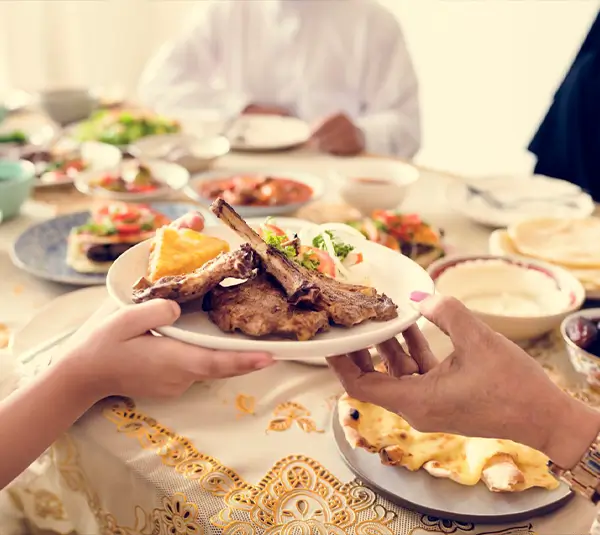Beyond the Fast: How Can We Extend the Spiritual Lessons of Ramadan Throughout the Year?
- Abeera Marium Siddiqui
- February 28, 2024
- 11:01 am
- 18

The holy month of Ramadan is a profoundly transformative experience for Muslims around the world. From dawn to dusk, we focus on deepening our faith through increased worship, developing self-discipline through fasting, and strengthening our sense of community. But what happens when Ramadan ends? How can we carry forward its spiritual lessons into our daily lives all year round?
The key is to reflect deeply on the inner transformations we underwent during Ramadan and work on sustaining them. Fasting trains us to detach from worldly pleasures and food does not become an end-goal in itself. We can maintain this attitude of gratitude and temperance towards all of God’s blessings, even when we are not fasting.

“And eat and drink but waste not by extravagance, certainly He (Allah) likes not Al-Musrifun (those who waste by extravagance).”
(Quran, 7:31)
Ramadan is a month spent immersed in intense worship and remembrance of Allah. But connection with the Divine should not be limited to Ramadan. All year round, we must strive to keep Allah at the forefront of our consciousness. Attending congregational prayers, reading Quran, performing dhikr, and dua should become part of our daily routine rather than once-a-year activities.
“The most beloved of actions to Allah are those that are continuous, even if they are little.”
(Bukhari and Muslim)
In Ramadan, Muslims rush to donate zakat and sadaqah and feed the poor. But people are in need throughout the year. So charity and community service must also continue all year round.
“The most beloved deed to Allah is to make a Muslim happy, to pay off his debt or to feed him.”
(Tabarani)

Donating a portion of our wealth and volunteering our time should become ingrained habits. Ramadan is also an exercise in cultivating self-control. By refraining from food and drink, we train our Nafs (self or ego) to submit to a higher will rather than base desires. After Ramadan, we can channel this spiritual vigor towards fighting bad habits and improving our character.
“Whoever gives up something for the sake of Allah, Allah will replace it with something better.”
(Ahmad)
Sleeping patterns that change during Ramadan can also be readjusted gradually instead of overnight after Eid. Waking up for suhoor instills the habit of early rising which boosts productivity. Sleeping early allows the body to heal. These positive sleep cycles can be continued in a modified form after Ramadan.
Above all, Ramadan teaches us patience, resilience, and sacrifice. Hardships faced during fasting increase empathy and bring us closer to those less fortunate. After Ramadan, we can call upon these experiences to deal with life’s ups and downs with gratitude, courage, and faith.
Sustaining the Ramadan high is challenging but not impossible. By focusing on its core spiritual teachings and implementing them gradually into our lifestyles, we can maintain our spiritual development all year round. Small consistent efforts are key. With renewed wisdom, discipline and sense of purpose, our lives can be transformed for the better, in Ramadan and beyond.
CATEGORIES


Your go-to destination for diverse and engaging content!
Explore a world of knowledge, entertainment, and connection right at your fingertips.
POPULAR POSTS





